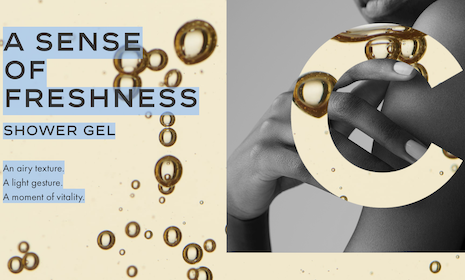- About
- Subscribe Now
- New York,
March 20, 2020

 The coronavirus cell. Image courtesy of the Center for Disease Control
The coronavirus cell. Image courtesy of the Center for Disease Control
The COVID-19 coronavirus has dramatically disrupted the lives of consumers globally and as this pandemic spreads, shoppers worldwide are transforming their behavior to adapt.
Thirty-one percent of shoppers have made more online purchases and 23 percent have cut down on their purchases at physical stores, according to a new report from Astound Commerce that analyzed the affect of COVID-19 on commerce.
“As consumers are forced to forgo in-store shopping, online and social now become their focus,” said Renata Akers, senior digital analyst at Astound Commerce, San Francisco.
“This is an opportunity for luxury retail to communicate their brand story via digital, outside of the physical store, and connect with younger shoppers, in particular,” she said.
 Renata Akers is senior digital analyst at Astound Commerce
Renata Akers is senior digital analyst at Astound Commerce
Changing behavior
The Astound Commerce report includes feedback from consumers in the United States, Canada, Middle East and Europe.
The research found that 57 percent of consumers have altered their day-to-day activities to be as contactless as possible.
Forty-six percent of consumers are eating more meals at home.
On average, 43 percent of consumers have cut back on planning vacations and on going to public events.
“This deals an awful blow to these industries, in particular, especially as the peak travel season begins to ramp up with spring break,” said Kylee Magno, senior digital analyst at Astound Commerce. “In the short-term, it will have a major effect, but long-term we don't see there being an issue. But we, like consumers, are optimistic.
“Once this virus has been eradicated and people are back on their feet, we expect that people will have a need to be out, to travel and interact, and do all the things we are currently unable to do in this situation,” she said.
“People have cabin fever and anxiety from being isolated. The minute they are able to freely move around, they will take advantage of travel and events, and have a newfound respect for free time and hanging out with family and friends.”
 Chanel's personal care campaign. Image credit: Chanel
Chanel's personal care campaign. Image credit: Chanel
Calming communications
According to the report, 32 percent of consumers have purchased more health and wellbeing products, and 45 percent have bought more cleaning products.
Luxury brands that sell these items should offer a cool and calm ambience to uneasy consumers barricading themselves and wondering what will come next.
Chanel, for instance, is promoting a message of calm and relaxation in the new “Les Necessaires de Chanel” campaign. The effort promotes the simplicity and calming nature of its bath and body care line, which is a focus on self-care that comes as many people are looking for calm amid the chaos (see story).
“Now is the time for a strong, creative digital presence,” Ms. Akers said. “As consumers are forced to forgo in-store shopping, online and social now become their focus.
“This is an opportunity for luxury retail to communicate their brand story via digital, outside of the physical store, and connect with younger shoppers, in particular,” she said.
“We are seeing many retailers convey a strong sense of community, and luxury will need to also extend that messaging to everyone,” she said.
 Kylee Magno is senior digital analyst at Astound Commerce
Kylee Magno is senior digital analyst at Astound Commerce
Out of stock
The report found that 47 percent of consumers have faced out-of-stock product issues.
As consumers confront these shortages, as well as delays in order fulfillment, brands have been asking for patience and understanding.
Additionally, marketers are explaining new delivery programs that support the need for social distancing.
“Messaging and content must acknowledge the current situation, put customers at ease and invite them to shop from a distance,” Ms. Akers said. “It's a great time to forge stronger bonds with customers that can extend into the future.
“Merchants can be more lenient in their return policies, offer free shipping without a threshold, and, if possible, offer contact-less curbside pick-up or home delivery,” she said.
Avoid sales tone
As consumers and brands continue to live through this nightmare scenario, it is important for brands to remember not to come off as too sales-pushy.
Even if online sales are going up as a result of people being shut in, marketers must keep the right tone for the seriousness of the current situation.
“Merchants have to be cognizant of not coming off as tone-deaf and make sure marketing acknowledges current prohibitions,” Ms. Magno said.
Instead marketers should think of ways to help worried consumers improve their lives, as Chanel is doing.
“Luxury marketers must stay visible to their shoppers and go where their shoppers are, on streaming services, smartphone apps, social media and smart TVs,” Ms. Magno said.
“Create campaigns around the home, home goods, design and decor," she said.
"Include tips for staying at home and self-care in an upscale way. Promote more through social media and digital means since customers will have more free time to be connected.”
Share your thoughts. Click here